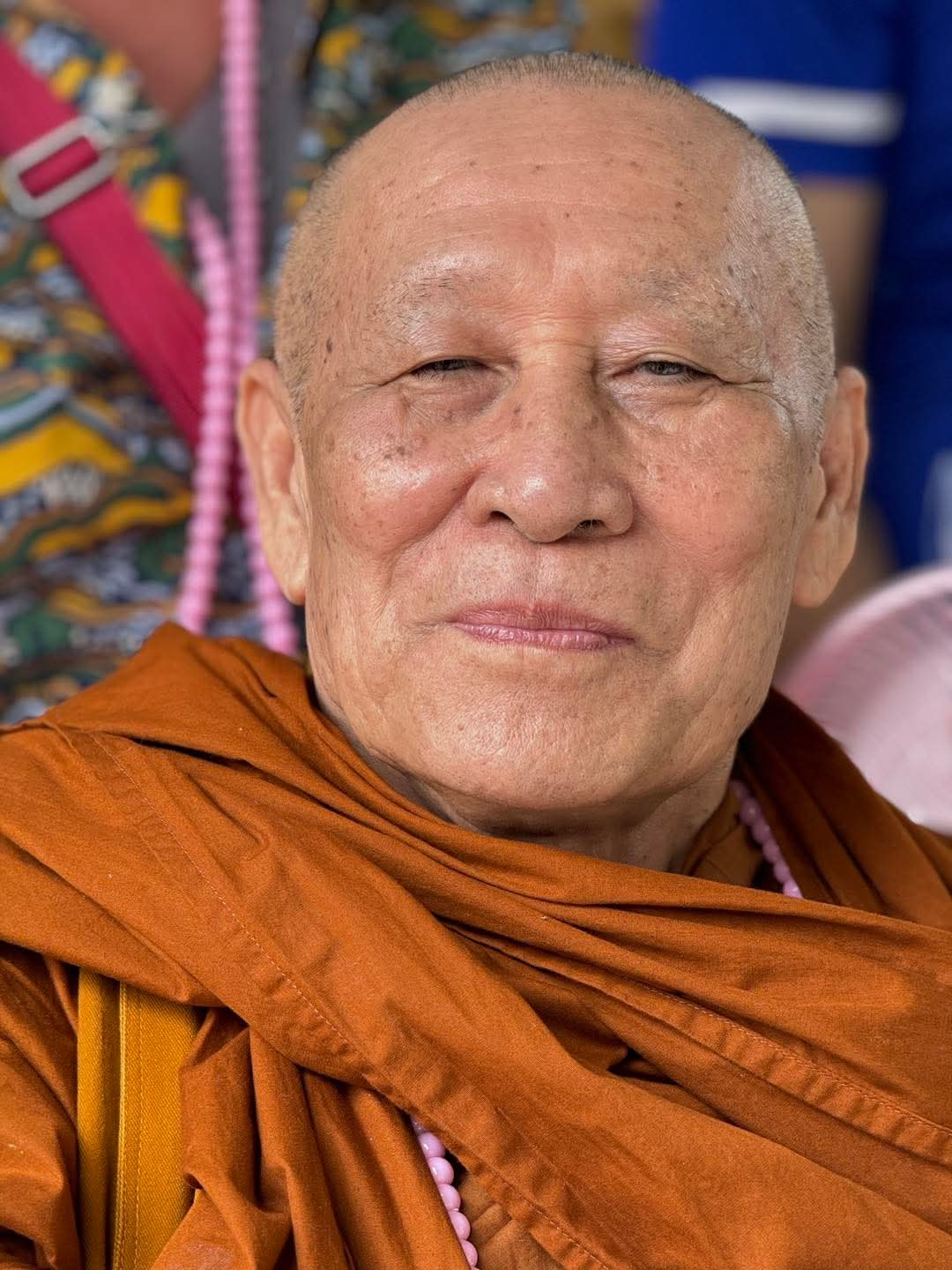0 ความคิดเห็น
0 การแบ่งปัน
138 มุมมอง
0 รีวิว

รายการ
ค้นพบผู้คนใหม่ๆ สร้างการเชื่อมต่อใหม่ๆ และรู้จักเพื่อนใหม่
- กรุณาเข้าสู่ระบบเพื่อกดถูกใจ แชร์ และแสดงความคิดเห็น!
- What’s In A Name: The Laws That Apply When Naming Your Baby
Can you really name your baby that?!
Picking a baby name that everyone (from grandma to the grocery clerk) likes can be a fruitless, futile endeavor. Coming up with one that confounds the whole world is seemingly a lot easier. Take Elon Musk, chief of Tesla and SpaceX, and singer Grimes, who recently announced the birth of their daughter, Exa Dark Sideræl, or “Y” for short. The “Y” makes more sense when you know that their older son is named X Æ A-12. (Yes, we’re talking about their human son, not the name of a new car or spacecraft.)
Sometimes, parents decide a name change is in order—like when celebrity couple Kylie Jenner and Travis Scott announced that they were going to change their son’s name from Wolf to one that better suits him. In other cases, though, a name change is not a matter of preference but of legality.
Is a baby name with numbers and symbols legal?
Call it peculiar, perplexing, or sensationalistic, but one thing you may not be able to call X Æ A-12 is … legal. When it comes to baby names, the fact is parents don’t always have free rein to choose any name they like. There are laws that limit their choices. These laws vary by state, and they’re arbitrary at best, but they are laws that appear in the books. While some states have strict laws that prohibit obscenities, numbers, and names that are too long, other states have no restrictions.
Take laid-back California, which isn’t so laid back when it comes to baby names. In fact, the state won’t even allow accent marks and other diacritical marks in names like José. This restriction originated in 1986, when Proposition 63 established English as the California’s official language. Names must only contain “the 26 alphabetical characters of the English language with appropriate punctuation if necessary.” And guess where little X Æ A-12 was born? That’s right: the Golden State.
It seems that for now, a California birth certificate can be completed with single dashes in the spaces for first, middle, and last names, and a legal name can be added later, which is exactly what Elon and Grimes have done for their son.
Will he ever need a legal name? Not necessarily. He won’t be arrested for not having one, but he will need one if he wants to obtain a Social Security number, passport, or driver’s license. His parents could consider tweaking his name a bit to make the legal cut, perhaps by spelling out some of the characters as David and Victoria Beckham did with their daughter, Harper Seven.
Why are there laws about baby names?
Not only are baby name laws inconsistent across the country, but if they are meant to protect children from controversial or embarrassing names, they often miss the boat. For example, in a well-publicized New Jersey case, a couple named their son Adolf Hitler Campbell, which is somehow permissible under the state’s law. The law bans names that contain “obscenity, numerals, symbols, or a combination of letters, numerals, or symbols…”, but naming a child after a mass murderer is A-OK.
In most cases, the United States is pretty relaxed about what you can name your child when it comes to the stigma or meaning a name may carry.
However there are some really bizarre cases where baby names have not been allowed in the good ol’ US. For example, in 2013, a Tennessee judge ordered that a baby’s name be changed to Martin instead of Messiah. Her reasoning: “The word Messiah is a title and it’s a title that has only been earned by one person and that one person is Jesus Christ.” That reasoning was later overturned, however, and the baby’s name was changed back to Messiah.
And in Georgia, a couple eventually won a legal battle to give their daughter the surname Allah. The court’s original objection to the name wasn’t any implied meaning, but rather that neither parent had that last name. Plus we don’t have to look far for celebrities who chose rather unusual baby names that have gone unchallenged. Penn Jillette named his child Moxie CrimeFighter, and Nicolas Cage chose Kal-El Coppola, to name a few—all of those passed the legal test.
Whether or not naming moderation is the government’s business is up for debate. Usually, states challenge names for reasons of practicality; for example, a record-keeping software may only allow a certain number of characters or not allow numerical digits. In Arkansas, you can’t name your child Test, Unk, Void, Baby Boy, Infant, or a handful of other names, because its system won’t accept them. In Hawaii, parents can include symbols in names, but for each one, there has to be at least one number too. In New Hampshire, the baby’s first, middle, and last names can’t exceed 100 characters in total.
According to constitutional law expert Carlton F.W. Larson (writing in the The George Washington Law Review), baby naming “is a legal universe that has scarcely been mapped, full of strange lacunae, spotty statutory provisions, and patchy, inconsistent caselaw.”
Are there naming laws in other countries?
Naming laws around the world vary even more and are often even more stringent than those in the United States.
In France, for example, parents have been banned from giving their children names that would “lead to a childhood of mockery,” such as Prince William and Mini Cooper. In Germany, a court ruled that a couple couldn’t name their child Stone because “a child cannot identify with it, because it is an object.” Möwe (“seagull”) was rejected as well, because the bird is “a nuisance and is seen as a pest and would therefore degrade the child.” In Denmark, parents must select from a list of pre-approved names, and if they want to use one that’s not on the list, they must get special permission.
In any case, if you’re planning on having a baby, you may want to check the laws in your locale before you get too attached to a name. Of course, even if your favorite name doesn’t make the grade, nicknames are a whole other, unrestricted territory. Anyone who has ever had a sobriquet like Stinky or Pickle Pop may wish there were some more stringent laws governing them, too.
Copyright 2024, AAKKHRA, All Rights Reserved.What’s In A Name: The Laws That Apply When Naming Your Baby Can you really name your baby that?! Picking a baby name that everyone (from grandma to the grocery clerk) likes can be a fruitless, futile endeavor. Coming up with one that confounds the whole world is seemingly a lot easier. Take Elon Musk, chief of Tesla and SpaceX, and singer Grimes, who recently announced the birth of their daughter, Exa Dark Sideræl, or “Y” for short. The “Y” makes more sense when you know that their older son is named X Æ A-12. (Yes, we’re talking about their human son, not the name of a new car or spacecraft.) Sometimes, parents decide a name change is in order—like when celebrity couple Kylie Jenner and Travis Scott announced that they were going to change their son’s name from Wolf to one that better suits him. In other cases, though, a name change is not a matter of preference but of legality. Is a baby name with numbers and symbols legal? Call it peculiar, perplexing, or sensationalistic, but one thing you may not be able to call X Æ A-12 is … legal. When it comes to baby names, the fact is parents don’t always have free rein to choose any name they like. There are laws that limit their choices. These laws vary by state, and they’re arbitrary at best, but they are laws that appear in the books. While some states have strict laws that prohibit obscenities, numbers, and names that are too long, other states have no restrictions. Take laid-back California, which isn’t so laid back when it comes to baby names. In fact, the state won’t even allow accent marks and other diacritical marks in names like José. This restriction originated in 1986, when Proposition 63 established English as the California’s official language. Names must only contain “the 26 alphabetical characters of the English language with appropriate punctuation if necessary.” And guess where little X Æ A-12 was born? That’s right: the Golden State. It seems that for now, a California birth certificate can be completed with single dashes in the spaces for first, middle, and last names, and a legal name can be added later, which is exactly what Elon and Grimes have done for their son. Will he ever need a legal name? Not necessarily. He won’t be arrested for not having one, but he will need one if he wants to obtain a Social Security number, passport, or driver’s license. His parents could consider tweaking his name a bit to make the legal cut, perhaps by spelling out some of the characters as David and Victoria Beckham did with their daughter, Harper Seven. Why are there laws about baby names? Not only are baby name laws inconsistent across the country, but if they are meant to protect children from controversial or embarrassing names, they often miss the boat. For example, in a well-publicized New Jersey case, a couple named their son Adolf Hitler Campbell, which is somehow permissible under the state’s law. The law bans names that contain “obscenity, numerals, symbols, or a combination of letters, numerals, or symbols…”, but naming a child after a mass murderer is A-OK. In most cases, the United States is pretty relaxed about what you can name your child when it comes to the stigma or meaning a name may carry. However there are some really bizarre cases where baby names have not been allowed in the good ol’ US. For example, in 2013, a Tennessee judge ordered that a baby’s name be changed to Martin instead of Messiah. Her reasoning: “The word Messiah is a title and it’s a title that has only been earned by one person and that one person is Jesus Christ.” That reasoning was later overturned, however, and the baby’s name was changed back to Messiah. And in Georgia, a couple eventually won a legal battle to give their daughter the surname Allah. The court’s original objection to the name wasn’t any implied meaning, but rather that neither parent had that last name. Plus we don’t have to look far for celebrities who chose rather unusual baby names that have gone unchallenged. Penn Jillette named his child Moxie CrimeFighter, and Nicolas Cage chose Kal-El Coppola, to name a few—all of those passed the legal test. Whether or not naming moderation is the government’s business is up for debate. Usually, states challenge names for reasons of practicality; for example, a record-keeping software may only allow a certain number of characters or not allow numerical digits. In Arkansas, you can’t name your child Test, Unk, Void, Baby Boy, Infant, or a handful of other names, because its system won’t accept them. In Hawaii, parents can include symbols in names, but for each one, there has to be at least one number too. In New Hampshire, the baby’s first, middle, and last names can’t exceed 100 characters in total. According to constitutional law expert Carlton F.W. Larson (writing in the The George Washington Law Review), baby naming “is a legal universe that has scarcely been mapped, full of strange lacunae, spotty statutory provisions, and patchy, inconsistent caselaw.” Are there naming laws in other countries? Naming laws around the world vary even more and are often even more stringent than those in the United States. In France, for example, parents have been banned from giving their children names that would “lead to a childhood of mockery,” such as Prince William and Mini Cooper. In Germany, a court ruled that a couple couldn’t name their child Stone because “a child cannot identify with it, because it is an object.” Möwe (“seagull”) was rejected as well, because the bird is “a nuisance and is seen as a pest and would therefore degrade the child.” In Denmark, parents must select from a list of pre-approved names, and if they want to use one that’s not on the list, they must get special permission. In any case, if you’re planning on having a baby, you may want to check the laws in your locale before you get too attached to a name. Of course, even if your favorite name doesn’t make the grade, nicknames are a whole other, unrestricted territory. Anyone who has ever had a sobriquet like Stinky or Pickle Pop may wish there were some more stringent laws governing them, too. Copyright 2024, AAKKHRA, All Rights Reserved.0 ความคิดเห็น 0 การแบ่งปัน 1633 มุมมอง 0 รีวิว - 0 ความคิดเห็น 0 การแบ่งปัน 193 มุมมอง 0 รีวิว
- 0 ความคิดเห็น 0 การแบ่งปัน 195 มุมมอง 0 รีวิว
- 0 ความคิดเห็น 0 การแบ่งปัน 242 มุมมอง 0 รีวิว
-
- “Karat” vs. “Carat”: The Difference Between How These Measure All That Glitters
When you’re buying gold and diamond jewelry, the difference between karats and carats can get confusing—and expensive—really fast.
That’s because karat and carat are used in similar contexts in similar ways (as units of measure), and in some cases and places they can even overlap.
We’ll break down what each word means, what exactly it measures, and review the different ways they’re used. We’ll even cover the homophones carrot and caret—and why there’s no such thing as 25-karat gold.
Quick summary
A carat is a unit of measure for the weight of gemstones, as in an eight-carat diamond or The jewel is 1 carat. In the US and other places, the word karat is typically used as a unit of measure for the purity of gold, as in 14-karat gold and 24-karat gold. In the UK and other places, the spelling carat is applied to both gems and gold.
Is it karat or carat?
Both spellings are used, but they can refer to different things in different places.
The spelling carat is typically always used for the unit of measure for the weight of gemstones, as in a three-carat diamond.
In the US and some other places, the word karat is used as a unit of measure for the purity of gold, as in 14-karat gold and 24-karat gold. In the UK and other places, the spelling carat is used for both gold and jewels.
What does karat mean in gold?
Pure gold is a very soft metal—it’s so soft it can be bent without even being heated. This makes it extremely inconvenient to make jewelry out of. It’s also very expensive. For these reasons, gold jewelry is often made from gold alloys, meaning gold mixed with some other metal.
The amount of gold in an alloy is measured in karats (or carats, in the UK and some other places). The mix is divided into 24 karats, which are kind of like fractions of the metal.
So, 14-karat gold is made of 14 parts gold out of 24 total parts (in other words, it’s about 58% gold). Gold labeled as 24-karat gold is pure gold, which is why it’s so expensive (and malleable). Karat is commonly abbreviated as k. Common karat values are 10k, 14k, 18k, 22k, and 24k (there is nothing above 24k gold, since it is pure gold).
What does carat mean in gems?
In the context of gemstones, and especially diamonds, carat refers to the weight of the stone. A carat is equivalent to .20 grams. In some systems, the weight of a diamond is divided into 100 points, with 100 points equaling one carat. Diamonds over 1 carat are typically described in terms of their carat value: a 2-carat diamond, a 3.5-carat diamond, and so on.
Obviously, the heavier the diamond, the bigger it’s likely to be, so this measurement is often used, on a practical level, as a measure of how large the diamond is. The biggest diamond ever dug up was the 3,106-carat Cullinan Diamond. But the average size of a diamond in an engagement ring is around 1 carat or less.
Carat vs. carrot (vs. caret)
Here’s a golden nugget of etymology, a real gem: the word karat is a variant of the word carat, which comes from the Medieval Latin carratus, a term once used by alchemists. It comes from Arabic qīrāṭ, meaning “weight of 4 grains,” from the Greek kerátion, meaning “carob bean,” “weight of 3.333 grains,” or, literally, “little horn.”
That little horn might bring to mind the somewhat hornlike appearance of a carrot, and in fact carrot has a distant etymological connection with carat. Carrot is rooted in the Greek kárē, meaning “head.”
Interestingly, the mark known as a caret (‸)—the one used to show where something should be inserted—kind of looks like a carrot, but its name is not etymologically related to carrot or carat. It comes from the Latin meaning “(there) is missing,” from the verb carēre, meaning “to be without.”
Examples of karat and carat used in a sentence
Here are some examples that show how karat and carat are commonly used.
- My parents bought me 24-karat gold earrings for my birthday!
- At 18 karats, this bracelet is a less expensive option.
- They keep a 10-carat diamond in the vault.
- The ring will be set with a jewel of three carats.
Copyright 2024, AAKKHRA, All Rights Reserved.“Karat” vs. “Carat”: The Difference Between How These Measure All That Glitters When you’re buying gold and diamond jewelry, the difference between karats and carats can get confusing—and expensive—really fast. That’s because karat and carat are used in similar contexts in similar ways (as units of measure), and in some cases and places they can even overlap. We’ll break down what each word means, what exactly it measures, and review the different ways they’re used. We’ll even cover the homophones carrot and caret—and why there’s no such thing as 25-karat gold. Quick summary A carat is a unit of measure for the weight of gemstones, as in an eight-carat diamond or The jewel is 1 carat. In the US and other places, the word karat is typically used as a unit of measure for the purity of gold, as in 14-karat gold and 24-karat gold. In the UK and other places, the spelling carat is applied to both gems and gold. Is it karat or carat? Both spellings are used, but they can refer to different things in different places. The spelling carat is typically always used for the unit of measure for the weight of gemstones, as in a three-carat diamond. In the US and some other places, the word karat is used as a unit of measure for the purity of gold, as in 14-karat gold and 24-karat gold. In the UK and other places, the spelling carat is used for both gold and jewels. What does karat mean in gold? Pure gold is a very soft metal—it’s so soft it can be bent without even being heated. This makes it extremely inconvenient to make jewelry out of. It’s also very expensive. For these reasons, gold jewelry is often made from gold alloys, meaning gold mixed with some other metal. The amount of gold in an alloy is measured in karats (or carats, in the UK and some other places). The mix is divided into 24 karats, which are kind of like fractions of the metal. So, 14-karat gold is made of 14 parts gold out of 24 total parts (in other words, it’s about 58% gold). Gold labeled as 24-karat gold is pure gold, which is why it’s so expensive (and malleable). Karat is commonly abbreviated as k. Common karat values are 10k, 14k, 18k, 22k, and 24k (there is nothing above 24k gold, since it is pure gold). What does carat mean in gems? In the context of gemstones, and especially diamonds, carat refers to the weight of the stone. A carat is equivalent to .20 grams. In some systems, the weight of a diamond is divided into 100 points, with 100 points equaling one carat. Diamonds over 1 carat are typically described in terms of their carat value: a 2-carat diamond, a 3.5-carat diamond, and so on. Obviously, the heavier the diamond, the bigger it’s likely to be, so this measurement is often used, on a practical level, as a measure of how large the diamond is. The biggest diamond ever dug up was the 3,106-carat Cullinan Diamond. But the average size of a diamond in an engagement ring is around 1 carat or less. Carat vs. carrot (vs. caret) Here’s a golden nugget of etymology, a real gem: the word karat is a variant of the word carat, which comes from the Medieval Latin carratus, a term once used by alchemists. It comes from Arabic qīrāṭ, meaning “weight of 4 grains,” from the Greek kerátion, meaning “carob bean,” “weight of 3.333 grains,” or, literally, “little horn.” That little horn might bring to mind the somewhat hornlike appearance of a carrot, and in fact carrot has a distant etymological connection with carat. Carrot is rooted in the Greek kárē, meaning “head.” Interestingly, the mark known as a caret (‸)—the one used to show where something should be inserted—kind of looks like a carrot, but its name is not etymologically related to carrot or carat. It comes from the Latin meaning “(there) is missing,” from the verb carēre, meaning “to be without.” Examples of karat and carat used in a sentence Here are some examples that show how karat and carat are commonly used. - My parents bought me 24-karat gold earrings for my birthday! - At 18 karats, this bracelet is a less expensive option. - They keep a 10-carat diamond in the vault. - The ring will be set with a jewel of three carats. Copyright 2024, AAKKHRA, All Rights Reserved.0 ความคิดเห็น 0 การแบ่งปัน 1475 มุมมอง 0 รีวิว1
- 0 ความคิดเห็น 0 การแบ่งปัน 172 มุมมอง 0 รีวิว
-
- 0 ความคิดเห็น 0 การแบ่งปัน 164 มุมมอง 0 รีวิว
- รีบมาฟังอาสนธิ รีบมาช้อปปิ้ง ครั้งก่อนมาช้าไปนิด ขนมร้านซันปังหมด ครั้งนี้ไม่พลาดค่ะรีบมาฟังอาสนธิ ❌ รีบมาช้อปปิ้ง✅ ครั้งก่อนมาช้าไปนิด ขนมร้านซันปังหมด ครั้งนี้ไม่พลาดค่ะ 😂0 ความคิดเห็น 0 การแบ่งปัน 389 มุมมอง 0 รีวิว
 2
2
- 0 ความคิดเห็น 0 การแบ่งปัน 238 มุมมอง 0 รีวิว
- #ความจริงมีหนึ่งเดียว0 ความคิดเห็น 0 การแบ่งปัน 353 มุมมอง 1 รีวิว1

- ทุกสิ่งแค่ของชั่วคราว สมบัติสาธารณะผลัดกันชม อย่ายึดมั่นถือมั่นยึดติดให้เยอะจะกลายเป็นทุกข์
ลองคิดดูโลกนี้มีอะไรเป็นของเราบ้าง เราตายไปแล้ว เราสามารถเอาอะไรไปได้บ้าง และครอบครองอะไรได้บ้าง
ทุกอย่างก็เปลี่ยนมือไปเป็นของคนอื่นหมุนเปลี่ยนวนเวียนเช่นนี้
โลกนี้สนุกได้ชั่วคราว
มาตัวเปล่า ไปตัวเปล่า
คุณค่าของการเกิดมา
ได้สร้างประโยชน์อะไร
ให้แก่โลกใบนี้
หลวงตาม้าทุกสิ่งแค่ของชั่วคราว สมบัติสาธารณะผลัดกันชม อย่ายึดมั่นถือมั่นยึดติดให้เยอะจะกลายเป็นทุกข์ ลองคิดดูโลกนี้มีอะไรเป็นของเราบ้าง เราตายไปแล้ว เราสามารถเอาอะไรไปได้บ้าง และครอบครองอะไรได้บ้าง ทุกอย่างก็เปลี่ยนมือไปเป็นของคนอื่นหมุนเปลี่ยนวนเวียนเช่นนี้ โลกนี้สนุกได้ชั่วคราว มาตัวเปล่า ไปตัวเปล่า คุณค่าของการเกิดมา ได้สร้างประโยชน์อะไร ให้แก่โลกใบนี้ หลวงตาม้า0 ความคิดเห็น 0 การแบ่งปัน 426 มุมมอง 0 รีวิว - 0 ความคิดเห็น 0 การแบ่งปัน 178 มุมมอง 0 รีวิว
- ความจริงมีหนึ่งเดียว ครั้งที่4 Live #ความจริงมีหนึ่งเดียวความจริงมีหนึ่งเดียว ครั้งที่4 Live #ความจริงมีหนึ่งเดียว0 ความคิดเห็น 0 การแบ่งปัน 340 มุมมอง 1 รีวิว
- ความจริงมีหนึ่งเดียว เพื่อชาติความจริงมีหนึ่งเดียว เพื่อชาติ 💛💛💛🇹🇭🇹🇭0 ความคิดเห็น 0 การแบ่งปัน 273 มุมมอง 0 รีวิว1

-
-
-
- สวัสดีเพื่อนๆ Turn problems into wisdomสวัสดีเพื่อนๆ Turn problems into wisdom0 ความคิดเห็น 0 การแบ่งปัน 280 มุมมอง 0 รีวิว
-
- รอดูยามใหญ่รอดูยามใหญ่0 ความคิดเห็น 0 การแบ่งปัน 246 มุมมอง 0 รีวิว
-
- 0 ความคิดเห็น 0 การแบ่งปัน 176 มุมมอง 0 รีวิว















